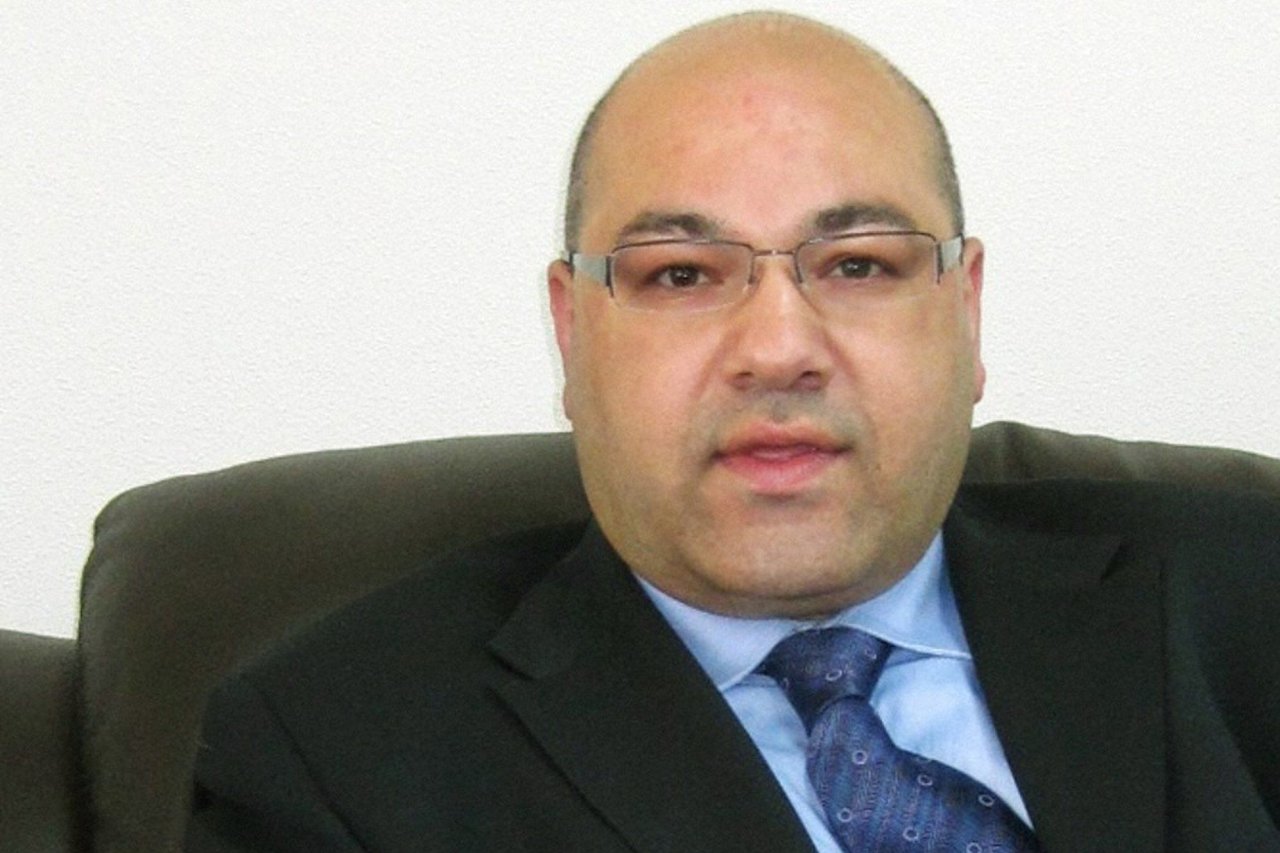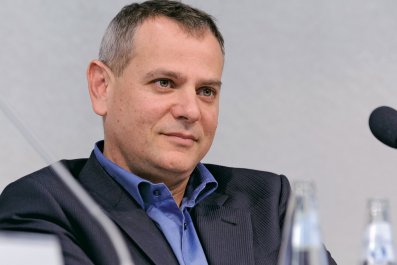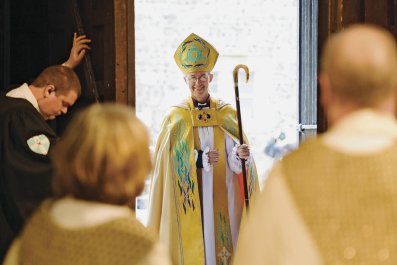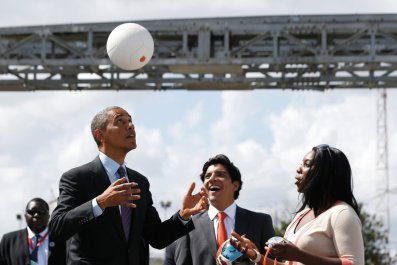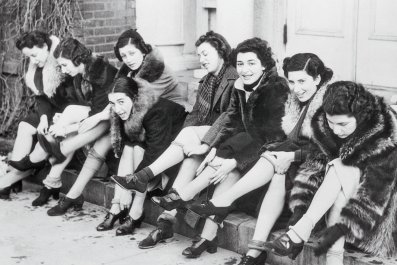In an empty but ornately decorated reception room in a building on Washington's embassy row, the new Iraqi ambassador to the U.S., Lukman Faily, is making what, charitably, might be described as a rather tough case: Iraq, he says, is still a good investment for America—and America should get more involved.
It's an argument Faily recently proposed in an op-ed in The Wall Street Journal, writing, "Though most Americans probably believe that Iraqis are fed up with the U.S., the truth is that Iraqis appreciate what the U.S. has done and are looking for more U.S. involvement—not more sacrifice of blood and treasure, but more diplomatic, political, trade, investment and economic partnership." Such partnerships fall under his purview, having just moved into what is arguably the second-most important posting for an Iraqi diplomat—after Tehran.
Unlike his predecessor, Faily does not come across as a classic diplomat—a man who's most comfortable habitat is a Beltway cocktail party, working the crowd. The 47-year-old technocrat is friendly but appears a bit uneasy, seemingly keenly aware that American foreign-policy elites have soured on Iraq and that, in this climate, any errant comment could cause an international incident.
Genial-looking and soft-spoken, Faily spent most of his adult life in Britain, working for various information technology companies and advocating the ouster of Saddam Hussein. After the American invasion of Iraq in 2003, he returned to Baghdad, finding work at the Foreign Ministry; then, in 2010, he was appointed Iraq's envoy to Tokyo. Now, as the new ambassador to the U.S., he has spent his first weeks in Washington walking the halls of Capitol Hill, attempting to persuade skeptical lawmakers that what Iraq really needs is more arms.
But extremists made Faily's point more effectively. When militant groups stormed Abu Ghraib last week and freed an estimated 500 militants, Washington reacted with shock that al Qaeda could succeed in mounting such a sophisticated, successful attack. Years of work arresting dangerous militants, many of whom were caught by U.S. soldiers, was undone in a single day. "Al Qaeda wants to resurrect their presence," he told me. "We are fighting them really hard on all fronts." In addition to a resurgence of al Qaeda–sponsored violence in Iraq, the brutal civil war in neighboring Syria threatens the still-fragile peace between the sects—all the more reason, the Iraqi government insists, for the United States to provide $10 billion worth of new weapons.
But in Washington, sending more weapons into the already chaotic region is seen as increasingly risky. Plus, there's anger among lawmakers, who believe the Iraqi government is intentionally allowing Iran to airlift military supplies and various other items over Iraqi airspace to aid the regime of Syrian President Bashar al-Assad. "There's human intelligence and there's signal intelligence that prove that these arms shipments are overflying Iraq," Sen. John McCain tells Newsweek.
It's an accusation denied by the Iraqi government—in the form of Faily. "We don't want to be used as a corridor," he says. Besides, he argues, if the United States wants the Iraqi government to stop the flow of arms, it must provide Iraq with the weapons it seeks. For the U.S. government, however, the weapons could be seen as a reward for a government whose loyalties in the Syria conflict are unclear and whose own authoritarian tendencies are of concern. The issue of the overflights has come to dominate the U.S.-Iraq government-to-government conversation, and the Iraqis are eager to shift the focus to their security rather than the tragedy in Syria. "They have nothing else to talk about but that," Faily says. "To us, this is a puzzling situation." But for a soft-spoken man, it may be hard to change the conversation.


